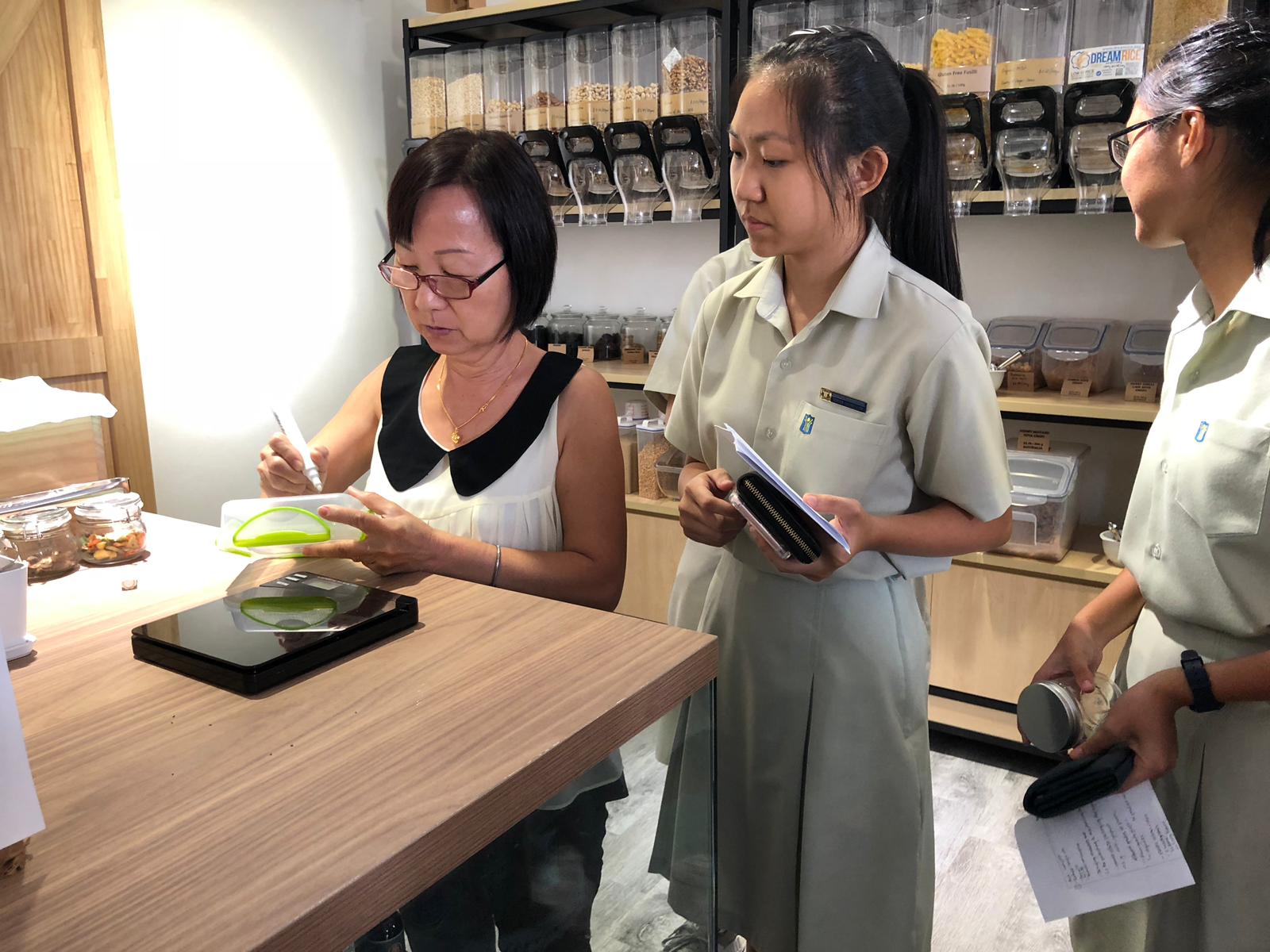English Language & Literature
English Language & Literature

Philosophy
The English Language & Literature Department believes that language is the basis of all communication and the primary instrument of thought in all situations, both formal and informal.
Activities such as Readers Theatre, EL Reading Programme, Talent Development Programmes and the Good English Language (GEL) Movement are conducted throughout the course of the year for Secondary One to Four YTzens to create opportunities to creatively express themselves. Our programmes encourage YTzens to read widely, speak confidently and write fiercely.
Through the various activities organised in-house as well as participating in external competitions, the English Language & Literature Department aims to help nurture YTzens of the future - confident leaders, active citizens and global thinkers who are proficient writers, confident speakers, critical thinkers and independent learners.The English Language & Literature Department believes that language is the basis of all communication and the primary instrument of thought in all situations, both formal and informal.
Picture Highlights
uploaded 5/12 images
Department Overview
Creating authentic and real world situations for students to learn and engage with language is one of the main focuses of the English Language and Literature Department as we believe that when students are able to experience and appreciate first-hand the subject matter that they are taught in the class, they will be able to find the joy in the learning.
As part of the English Language and Literature curriculum, our students participate in learning journeys, Good English Language (GEL) Week, Readers Theatre, English Language Reading Programme and sign up for our Talent Development Programme. In 2018, the department also organised our inaugural Get R.E.A.L Festival, to develop a greater love for languages and Literature.
Through the varied pedagogy and learning experiences curated for our Secondary 1 to 4 students, YTzens have the opportunity to explore the different facets of language learning and literature – reading, writing, speaking and listening. With the different skill sets students are exposed to, the English Language & Literature Department aims to help nurture YTzens of the future - confident leaders, active citizens and global thinkers who are proficient writers, confident speakers, critical thinkers and independent learners.
Mission & Vision
|
Mission |
Every student will succeed in doing well in the English Language and Literature |
|---|---|
|
Vision |
Every student will be a confident and proficient user of the English Language |
Key Programs / Enrichment for students
Experimental Learning
From 2018 onwards, the department will be embarking on dialogic pedagogy in which certain units within the curriculum will be taught through a process in which teacher and pupils critically experience language learning in the real world and actively reflect to create meaning for themselves. Students will engage in exciting discussions and critically assess issues that are relevant to their daily life.

In 2018, our Secondary 3 cohort embarked on a learning journey to Unpackt, a zero waste grocery store where they learned more about waste management and leading a more environmentally conscious lifestyle.
.jpeg)
Reading Program
Reading forms the cornerstone of English literacy. Students are encouraged to read regularly through the activities in the Grapevine Reading Programme:
|
Drop Everything and Read (DEAR) - Time is set aside during
the morning assembly on odd weeks to get students in the habit of reading
English materials.
|
|---|
|
Reading Programme - Reading lessons are structured in the timetables so that there is a time and space for students to discuss ideas and themes related to a given text. Through thought provoking questions and class discussions, teachers connect literature to the world we live in and extrapolate life lessons to make the texts more relevant to the students. |
Good English Movement (GEL)
The Good English Movement (GEL) is a whole-school approach which aims to raise awareness of the importance in communicating in Standard English and to cultivate confident speakers in YTzens. The movement saw an overwhelming response and participation in a myriad of activities for students and staff, including the Instagram Challenge, poem-writing competition, speech presentations and Readers’ Theatre.
Reader's Theatre
The department aims to bring out the confident communicator in all YTzens. Adopting a student-centred approach, students learn about pronunciation, enunciation and voice projection through Reader’s Theatre. In Reader’s Theatre, students experiment with different ways to express emotions and to understand the importance of having appropriate vocal expressions because these can affect the impact of the story on the audience.
Before the dramatisation, students need to translate a narrative prose text to a Reader’s Theatre script. Given the different types of texts, students need to use the appropriate grammar, tone and register in their translations. Hence, Reader’s Theatre allows students to acquire both oral and written communication skills in an engaging manner.
Talent Development Programme
Students who have demonstrated high competencies in speaking and writing are stretched under the departmental talent development programme. Selected students are exposed to community events and prestigious competitions that aim to hone their communication, critical and inventive thinking skills.
|
Notable competitions students participate include: |
|
|---|---|
|
Chong Pang's Next Top Speaker |
|
|
National Schools Literature Competition |

